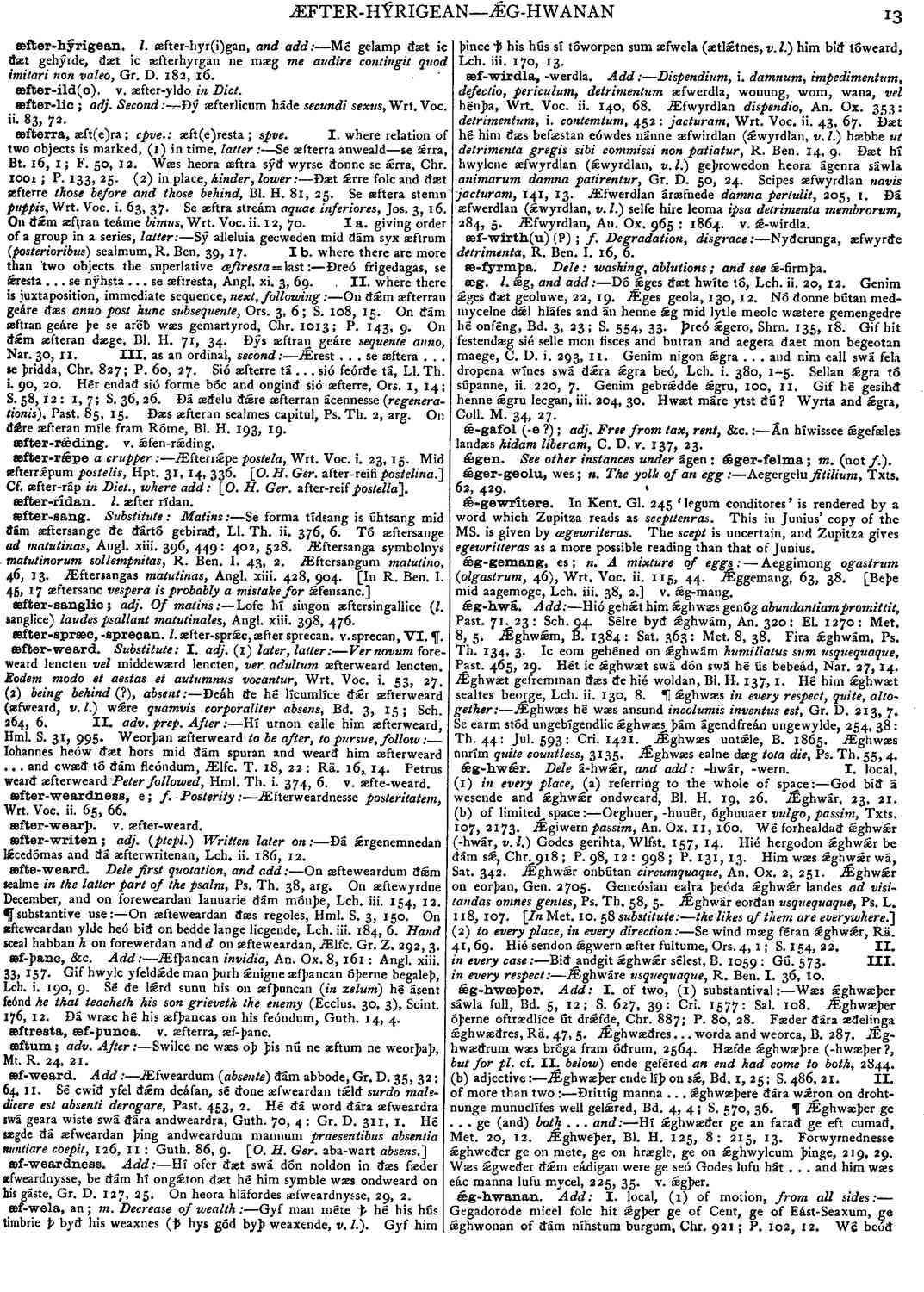ǽg-hwǽr
-
God bið á wesende and ǽghwǽr ondweard,
- Bl. H. 19, 26.
-
Ǽghwár,
- 23, 21.
-
Oeghuer, -huuér, óghuuaer
vulgo, passim,
- Txts. 107, 2173.
-
Ǽgiwern
passim,
- An. Ox. 11, 160.
-
Wé forhealdað ǽghwǽr (-hwár,
v. l.
) Godes gerihta,- Wlfst. 157, 14.
-
Hié hergodon ǽghwǽr be ðám sǽ,
- Chr. 918; P. 98, 12: 998; P. 131, 13.
-
Him wæs ǽghwǽr wá,
- Sat. 342.
-
Ǽghwǽr onbútan
circumquaque,
- An. Ox. 2, 251.
-
Ǽghwǽr on eorþan,
- Gen. 2705.
-
Geneósian ealra þeóda ǽghwǽr landes
ad visitandas omnes gentes,
- Ps. Th. 58, 5.
-
Ǽghwár eorðan usquequaque, Ps. L. 118, 107. [
In
- Met. 10. 58 substitute :-- the likes of them are everywhere.
-
Se wind mæg féran ǽghwǽr,
- Rä. 41, 69.
-
Hié sendon ǽgwern æfter fultume,
- Ors. 4, 1; S. 154, 22.
-
Bið andgit ǽghwǽr sélest,
- B. 1059: Gú. 573.
-
Ǽghwáre
usquequaque,
- R. Ben. I. 36, 10.
Bosworth, Joseph. “ǽg-hwǽr.” In An Anglo-Saxon Dictionary Online, edited by Thomas Northcote Toller, Christ Sean, and Ondřej Tichy. Prague: Faculty of Arts, Charles University, 2014. https://bosworthtoller.com/37728.
Checked: 0